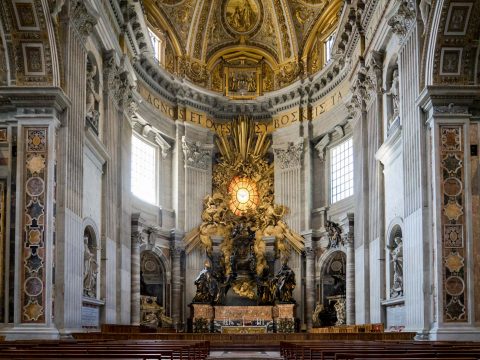
The counsel of God was in accordance with the highest reason, that his purpose was either to train his people to patience, correct their depraved affections, tame their wantonness, inure them to self-denial, and arouse them from torpor; or, on the other hand, to cast down the proud, defeat the craftiness of the ungodly, and frustrate all their schemes.
How much soever causes may escape our notice, we must feel assured that they are deposited with him, and accordingly exclaim with David, “Many, O Lord my God, are thy wonderful works which thou hast done, and thy thoughts which are to us-ward: if I would declare and speak of them, they are more than can be numbered,” (Psa 40: 5) For while our adversities ought always to remind us of our sins, that the punishment may incline us to repentance, we see, moreover, how Christ declares there is something more in the secret counsel of his Father than to chastise every one as he deserves. For he says of the man who was born blind, “Neither has this man sinned, nor his parents: but that the works of God should be made manifest in him,”, (John 9: 3)
Here, where calamity takes precedence even of birth, our carnal sense murmurs as if God were unmerciful in thus afflicting those who have not offended. But Christ declares that, provided we had eyes clear enough, we should perceive that in this spectacle the glory of his Father is brightly displayed. We must use modesty, not as it were compelling God to render an account, but so revering his hidden judgements as to account his will the best of all reasons.
When the sky is overcast with dense clouds, and a violent tempest arises, the darkness which is presented to our eye, and the thunder which strikes our ears, and stupefies all our senses with terror, make us imagine that every thing is thrown into confusion, though in the firmament itself all continues quiet and serene. In the same way, when the tumultuous aspect of human affairs unfits us for judging, we should still hold, that God, in the pure light of his justice and wisdom, keeps all these commotions in due subordination, and conducts them to their proper end.
John Calvin, The Institutes, I.17.1



